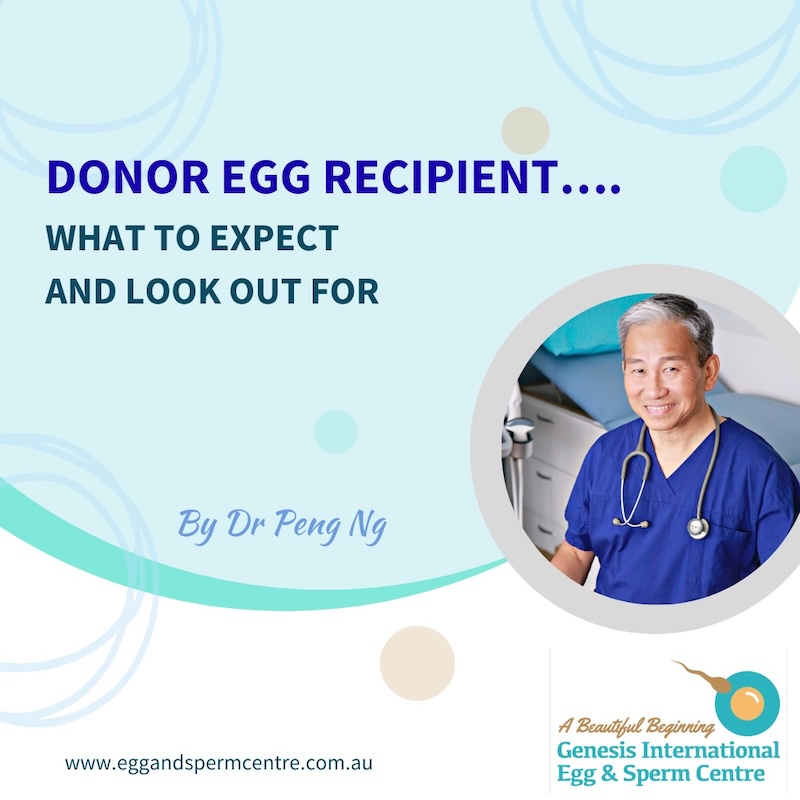28Aug
Donor egg recipient… What to expect and look out for
An egg recipient has to go through medical, emotional, financial and sometimes legal considerations.
This journey is usually a complex process.
- Initially, you need to accept that you need to use donor eggs, and that you cannot conceive using your own eggs.
- You would need a couple of counselling sessions with a qualified assisted conception Psychologist to prepare for the implications and responsibilities of using donor eggs, pregnancy and parenthood.
- Selection of a suitable donor. This is a very personal decision.
- Anonymous donor: At Genesis International, we provide extensive profile information on the donor’s physical characteristics, family medical history, blood and infectious disease screening, hobbies and extended genetic carrier screening results etc. All our donors are 32 years old or younger. Every donor goes through counselling with an Australian-qualified Psychologist prior to donation.
- Known donor (eg. friends/relative): There are variable requirements. The donor will still need counselling from a Psychologist and various blood, infectious disease screening tests. The process has to be altruistic (meaning the donor does not receive financial gain). Before proceeding, legal agreements are essential.
- COST: The process involves not only the costs of the cohort of eggs, but also the IVF process of fertilisation, embryo transfer and embryo freezing. For a known donor, the recipient is usually responsible for all the medical costs of the donor including all the investigations, screening and procedures involved.
- SYNCHRONISING of the IVF process: The fertilisation of the donor eggs has to be synchronised with your menstrual cycle. There is only a narrow window of receptivity for the uterus in the whole menstrual cycle or artificial cycle for a successful embryo transfer. Your IVF Specialist will facilitate the process.
- UNSUCCESSFUL PREGNANCY: It is devastating to not achieve a pregnancy since so much emotional and financial resources have been invested. It is important to be mentally prepared for this and be ready to seek help if required. If there are recurrent failures, it is advisable to consult your IVF Specialist to see if there is any additional investigation, supplement, treatment that can be implemented.
- PREGNANCY PROCESS: A blood pregnancy test is usually scheduled two weeks after the Transfer date. When the pregnancy is stable, the IVF Clinician will usually transfer your care to an Obstetrician of your choice or to your GP for share care with a public hospital.
- WHEN AND HOW TO TELL YOUR CHILD: This requires careful consideration depending on your personal circumstances. In general, it is recommended that the child be told at a young age. Research suggests that it is ideal around 5 to 6 years old. Keeping it a secret can create resentment and loss of trust in the family, if the child finds out at a later date. You should emphasise your love for the child while broaching this sensitive subject and be prepared for questions.

